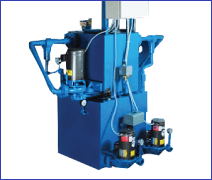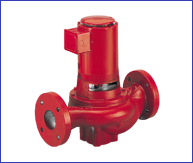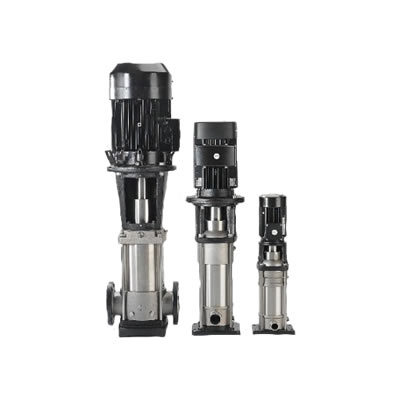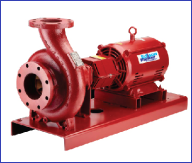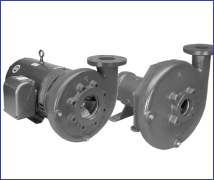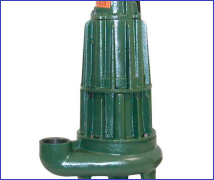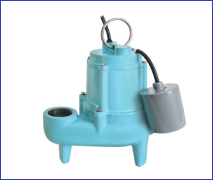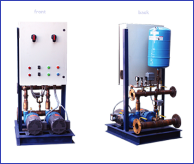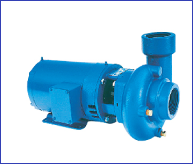In addition to improving the performance of the HVAC system, commercial vacuum pumps can also help to reduce energy costs. By ensuring that the HVAC system operates efficiently, the pumps can help to reduce the amount of energy required to maintain a comfortable temperature within the building. This can result in significant cost savings over time, particularly for large commercial buildings with high heating and cooling requirements.
By improving air flow, reducing blockages, and optimizing pressure levels, these pumps help to create a comfortable and healthy environment for building occupants, while also providing cost savings for building owners and managers.
While both suction pumps and vacuum pumps can be used to remove air and other gases from an HVAC system, vacuum pumps are typically better suited for creating and maintaining a vacuum in the system, particularly for larger and more complex HVAC systems. This is because vacuum pumps are more powerful and can handle a wider range of pressure levels as well as higher flow rates and larger volumes of gases.
Common problems with vacuum pumps used in HVAC systems include leaks, clogs, and mechanical failures. These issues can be addressed through regular maintenance of vacuum pumps, as well as prompt repair or replacement of damaged components of the vacuum pump system. If you are experiencing poor air flow, inconsistent temperature control, or other issues with your HVAC system, it may be necessary to have a licensed HVAC technician help to diagnose the problem and determine if vacuum pump service is needed.
Wide Range of Commercial Vacuum Pumps Available
At Edison Parker, we understand the diverse needs of various industries. That’s why we offer a broad range of vacuum pumps tailored to your specific requirements. From compact units for small operations to large-scale industrial vacuum systems, our selection is designed to meet the demands of any business size.
Find the Perfect Vacuum Collection System for Your Business
Edison Parker is dedicated to ensuring that businesses find the ideal vacuum system that aligns with their operations. With a wealth of experience in catering to both large and small businesses, we understand that each has its unique vacuum system needs. Our approach involves a meticulous assessment of each business’s specific requirements, enabling us to tailor vacuum solutions that are not only effective but also seamlessly integrate with the existing systems. Whether it’s for commercial vacuum systems or industrial vacuum systems, Edison Parker’s solutions are designed to maximize efficiency and adaptability.
Benefits of Edison Parker Vacuum Systems
Investing in Edison Parker’s vacuum systems brings a multitude of advantages to your business. Not only are our systems reliable, but they are also designed with the highest industry standards in mind. Our industrial grade vacuum system ensures maximum efficiency, durability, and performance, making it a top choice for businesses seeking the best in the market. With our focus on cutting-edge technology, you can expect a system that offers superior cleaning and maintenance capabilities, tailored to your business’s unique operational needs.
Quality Repair Service and Purchase of Replacement for your Industrial Vacuum Systems in NY
Edison Parker specializes in providing top-notch repair services and replacement options for industrial vacuum systems in New York, focusing on systems used in HVAC applications. Their expertise ensures that your vacuum pump systems maintain optimal performance, crucial for efficient HVAC operation in various settings.
Residential Buildings
Edison Parker’s vacuum systems for residential buildings are vital in maintaining efficient HVAC systems, especially in multi-unit dwellings. Their services ensure that these systems are kept in optimal condition, leading to consistent air quality and pressure levels, essential for a comfortable living environment.
Commercial Buildings
In commercial buildings, Edison Parker’s vacuum systems play a crucial role in ensuring the smooth functioning of HVAC systems. They effectively manage air pressure and quality in diverse environments like offices and retail spaces, making them indispensable for maintaining a comfortable and healthy indoor atmosphere.
Hospitals and Nursing Homes
For hospitals and nursing homes, where consistent air quality and pressure are critical, Edison Parker’s vacuum systems are essential. Their systems aid in the efficient functioning of HVAC systems, ensuring a sterile and safe environment that meets the stringent standards of healthcare facilities.
Restaurants
Edison Parker’s vacuum systems for restaurants are designed to support HVAC systems in maintaining optimal air quality and temperature control. These systems are crucial in creating a comfortable dining environment while ensuring energy efficiency in fast-paced, culinary settings.
Factories
In factories, Edison Parker’s industrial vacuum systems are key to maintaining efficient HVAC systems. These systems ensure the removal of airborne contaminants and the regulation of air pressure, contributing to a safer and more controlled industrial environment.
Hotels
For hotels, the effectiveness of HVAC systems is vital for guest comfort, a need met by Edison Parker’s vacuum systems. These systems ensure efficient air circulation and temperature control throughout various hotel spaces, playing a crucial role in maintaining the high standards expected in the hospitality industry.
Edison Parker’s expertise in vacuum systems across different building types underscores their role in not just maintaining HVAC efficiency but also in contributing to energy savings and creating healthier, more comfortable environments.
Why Choose Edison Parker for Your Vacuum System Needs in NY / NJ?
Edison Parker isn’t just another vacuum system provider. We prioritize understanding the unique needs of each business and offering customizable vacuum systems for commercial purposes.
Trusted Vendor for Commercial Vacuum Systems Purchases
With years in the industry, Edison Parker has established itself as a trusted name for quality vacuum systems. Our reputation is built on delivering top-notch products consistently.
Unmatched Repair Service in NY / NJ
When it comes to servicing and repairs, our team is unrivaled. We ensure your vacuum systems are running optimally with minimal downtime.
Expert Technical Support and After-Sales Service in NY / NJ
Our relationship with clients doesn’t end post-purchase. We offer expert technical support and a dedicated after-sales service, ensuring you always have assistance when you need it.
Edison Parker Only Deals With Reliable Brands
We believe in quality. Hence, we associate only with renowned brands known for their reliability and performance, ensuring you get the best value for your investment.
At Edison Parker, we pride ourselves on partnering with industry-leading brands such as Grundfos, Goulds, Pentair, Taco, Weinman, Armstrong, and Bell & Gossett to ensure our customers receive unparalleled quality and performance in their commercial systems.

 718.768.1600
718.768.1600